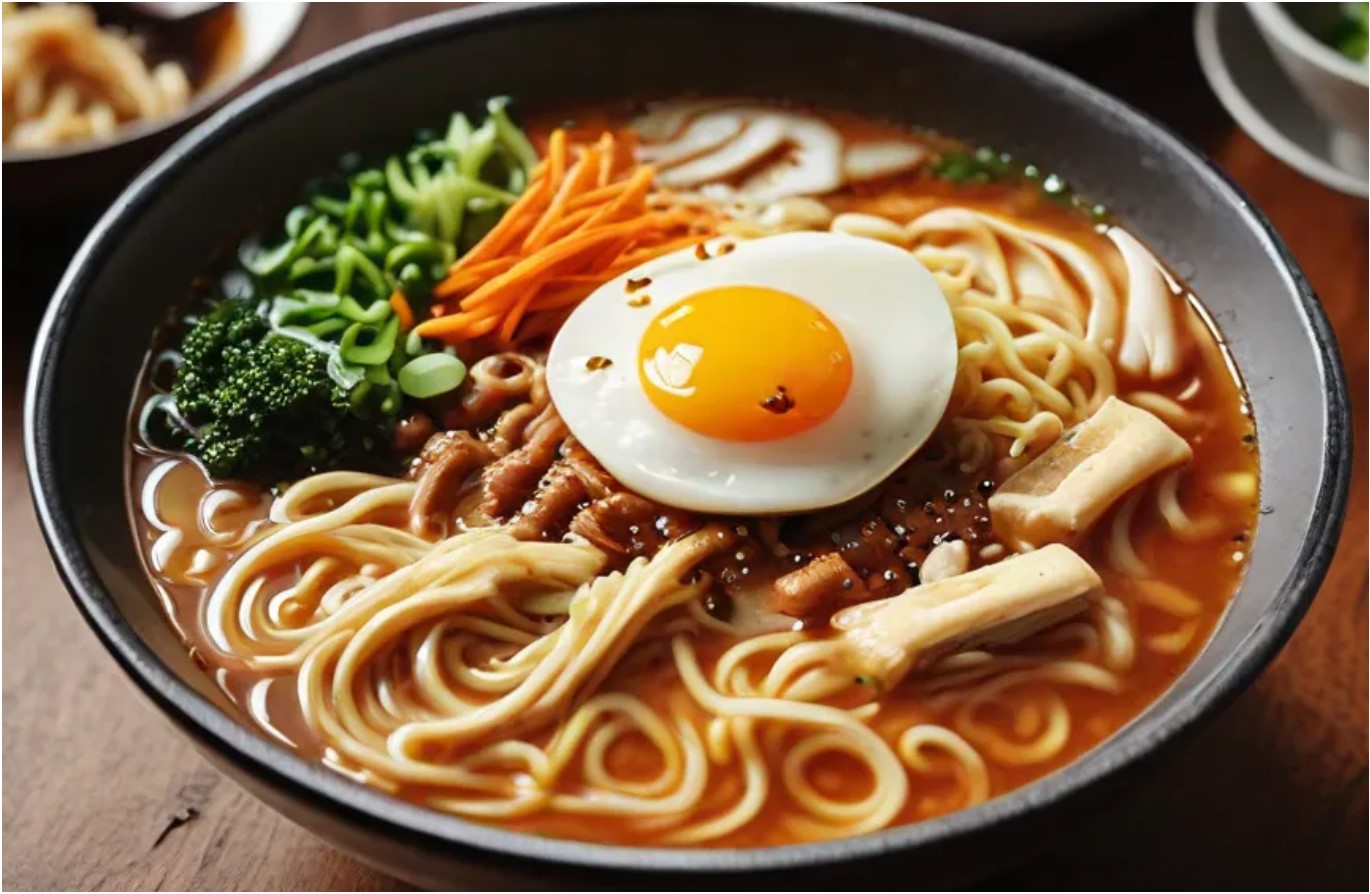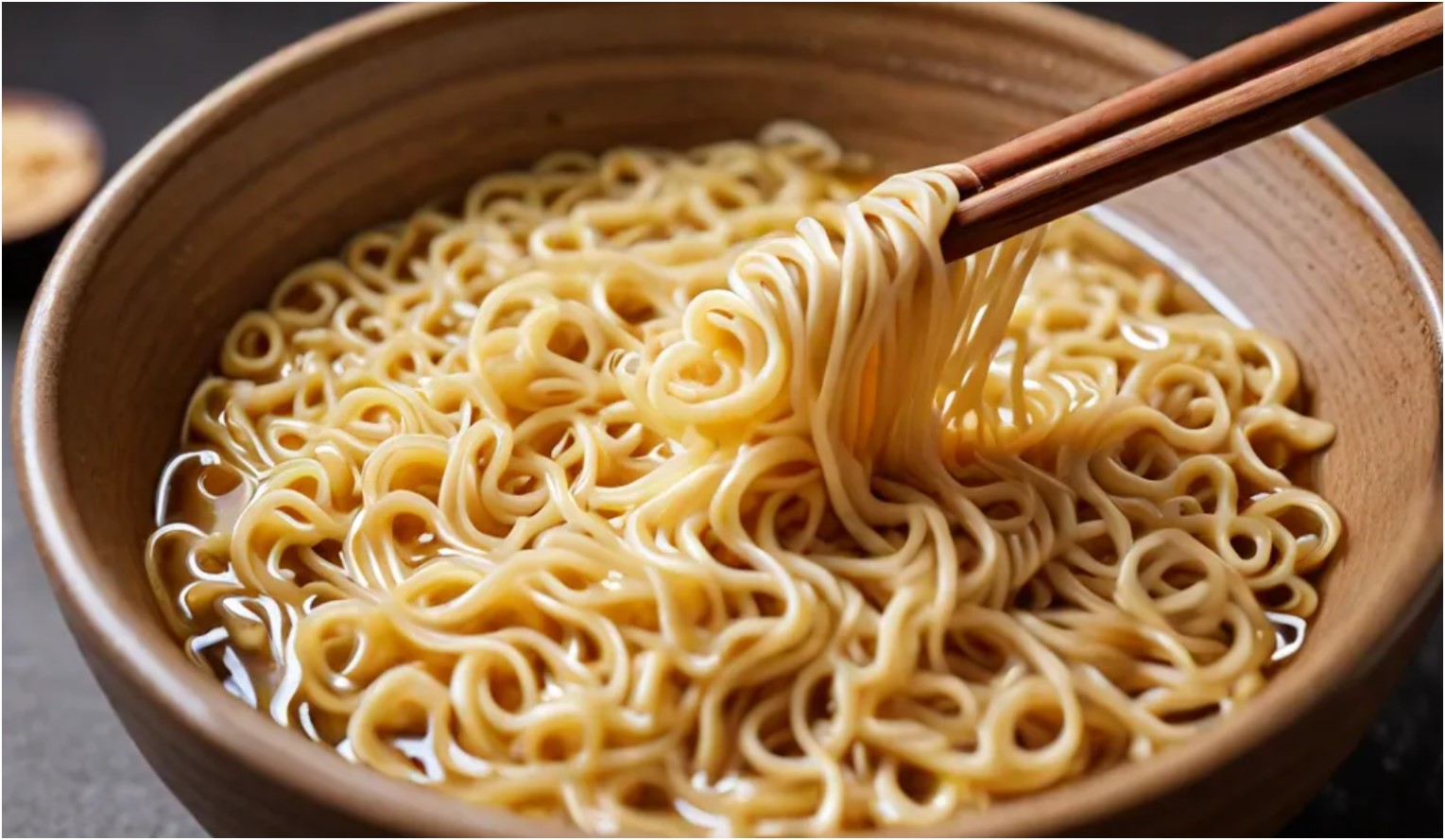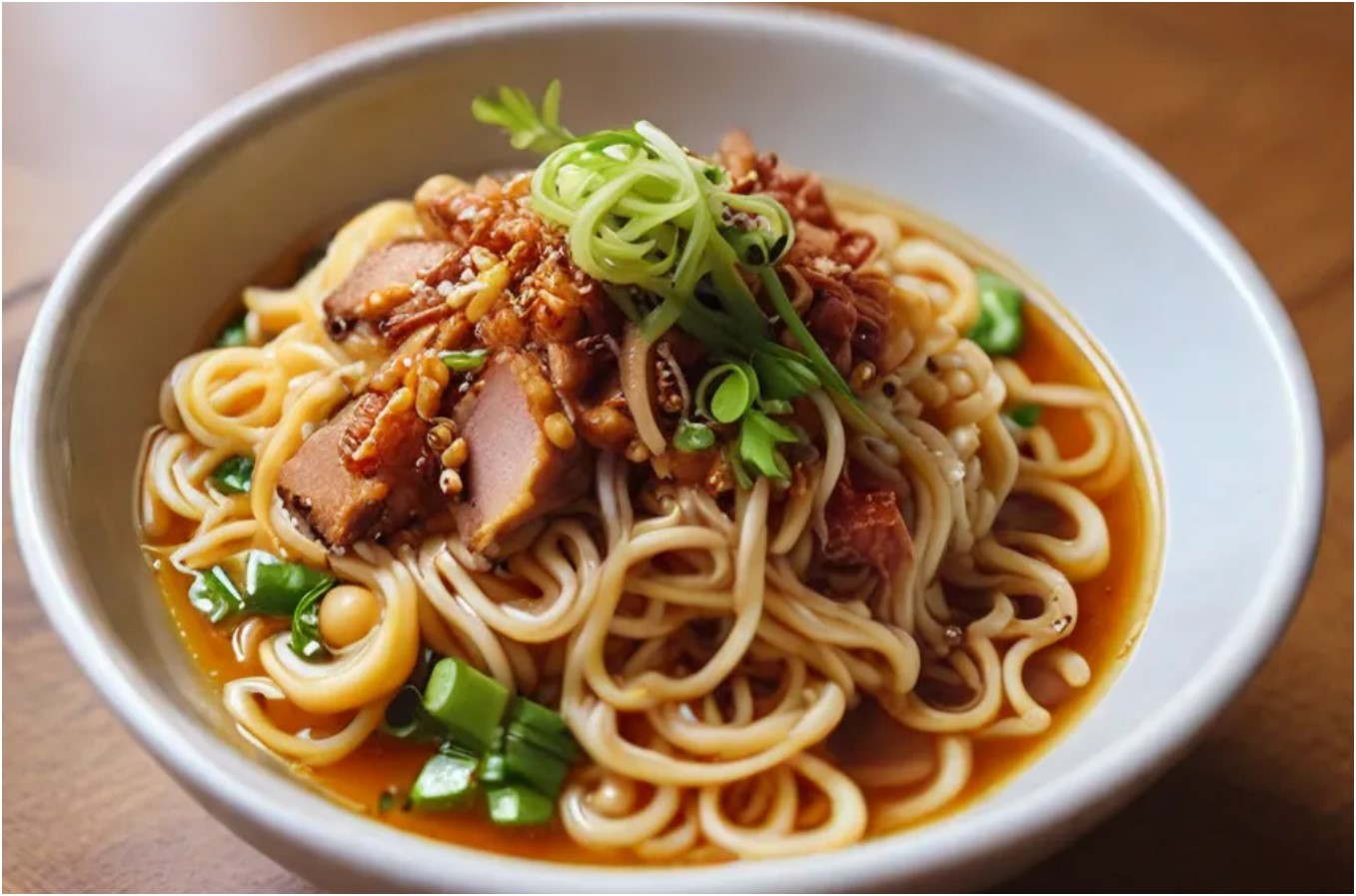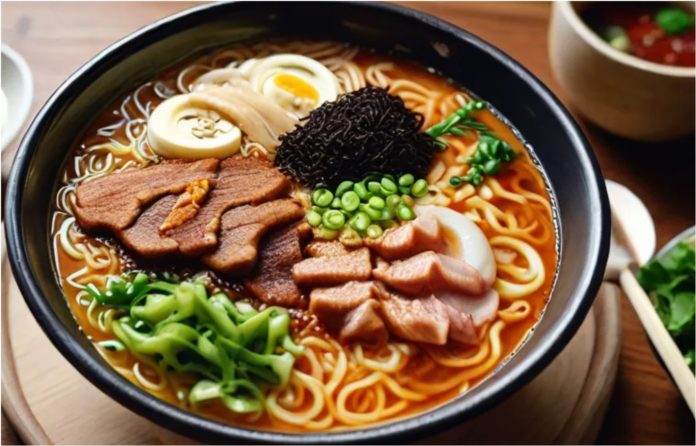When you need a bowl of delicious, homemade Korean ramyen. In this post, I will teach y’all how to make the perfect Korean ramen broth using gochujang as well as provide suggestions for noodles and toppings.
Korean style ramen has become quite popular for its flavors, hearty broth and variety of toppings. Whether you’re new, to food or a seasoned food lover mastering the art of making an authentic Korean ramen broth with gochujang, noodles and assorted toppings can make a difference in your culinary experience. This comprehensive guide offers instructions and addresses common queries to help you achieve perfection with your ramen every time.
The Heart of Ramen; The Broth
The broth serves as the heart and soul of any ramen dish. In Korean-style-ramen a flavorful broth is crucial. Here’s a straightforward yet tasty recipe to kickstart your journey.
Ingredients for the Best Ramen Broth
- 8 cups of water
- 4 cups of chicken or vegetable broth
- 1 large onion, quartered
- 4 garlic cloves, smashed
- 1-inch piece of ginger, sliced
- 2 tablespoons of soy sauce
- 2 tablespoons of miso paste
- 2 tablespoons of gochujang (Korean chili paste)
- 1 tablespoon of sesame oil
- 1 tablespoon of fish sauce (optional)
- 1 sheet of dried kelp (kombu)
Also Read: Unveiling the Irresistible Charm of Chowmein: A Culinary Delight in Nepal and India
Let’s make the Quick and Best Korean Ramen Broth:
- Creating the Base: Combine water and either chicken or vegetable broth in a pot. Add onion, garlic, ginger and dried kelp.
- Now Simmering Process: Bring it to a boil before reducing the heat to simmer for 30 minutes. This process allows the broth to absorb all those flavors.
- Enhancing Flavors: Discard the onion, garlic, ginger and kelp. Incorporate soy sauce miso paste, gochujang, sesame oil and fish sauce if desired.
- Blending It Together: Utilize an immersion blender to blend all ingredients until smooth, for that savory broth.

Gochujang: The Spicy Kick
Gochujang plays a role, in cuisine bringing a mix of spiciness, sweetness and umami to dishes. It consists of powder, sticky rice, fermented soybeans and salt. When incorporated into ramen broth gochujang adds richness and layers of flavor.
Tips for Using Gochujang
- Start with an amount as it can be quite strong; adjust according to your preference.
- Make sure to blend it into the broth to prevent any lumps.
- Enhance its taste by combining it with ingredients, like soy sauce and sesame oil.
Perfect Noodles for Ramen
This makes the noodle choice a critical part of your ramen diet. This is how to make them perfect:

Types of Noodles:
- Fresh ramen noodles: for an authentic bite.
- Packaged Dried Ramen Noodles: Cheap and easy to find.
- Instant Noodles– The quick fix, however not the real deal.
Cooking Instructions:
- Boil Water: Make ready a large pot and add the water to the rolling boil.
- Cook Noodles: Now add the noodles and cook it until 5 minutes (Also see the Package Instructions).
- Drain and Rinse: After 3-5 minutes remove the cooked ramen and drain the water and let it cool.
- Serve: Now you have to add the noodles to th broth which you prepared before, and serve now and enjoy! 😋😋🍜
Toppings: The Finishing Touch
If you have many topping ingredients, then your dish could be more delicious, flavorful and it feels like the best of the best one. The following topping ideas for it could be the best.

Common Toppings Ideas for Korean Ramen:
- Soft-Boiled Eggs: Marinated in soy sauce for extra flavor.
- Scallions: Chopped finely for a fresh bite.
- Kimchi: Adds a tangy, spicy crunch.
- Sesame Seeds: For a nutty flavor.
- Nori (Seaweed): Provides a savory, umami taste.
- Bean Sprouts: Adds a fresh crunch.
- Bok Choy or Spinach: For a healthy, green addition.
FAQs:
Can i make broth in advance?
Yes, you can and store it in the refrigerator for up to a week or freeze it for up to a month.
What if I don’t have gochujang?
If you don’t have gochujang, you can use the mix of miso paste and chili sauce. But the flavor would change on it.
How can I make a vegan Ramen?
Use vegetable broth and skip the fish sauce. Add extra miso paste or soy sauce for depth of flavor.
How do I prevent noodles from getting soggy?
The only way to prevent your ultimate ramen from soggy, you can broth ramen just right before serving. Although, if you have to store then you can keep noodles and broth seperately.
What are some gluten-free noodle options?
Rice noodles or gluten-free ramen noodles are great alternatives. Cook them according to the package instructions.
This is also a fantastic cooking journey, rich Korean style ramen broth with gochujang and noodles & toppings. Luckily, as long as you have the right ingredients and the time to practice, a bowl of ramen that is chock-full of flavor can be made by just about anybody. Have fun trying on toppings and flavors to suit your taste.
If you have any questions about this recipe, please email us. Thank you.

